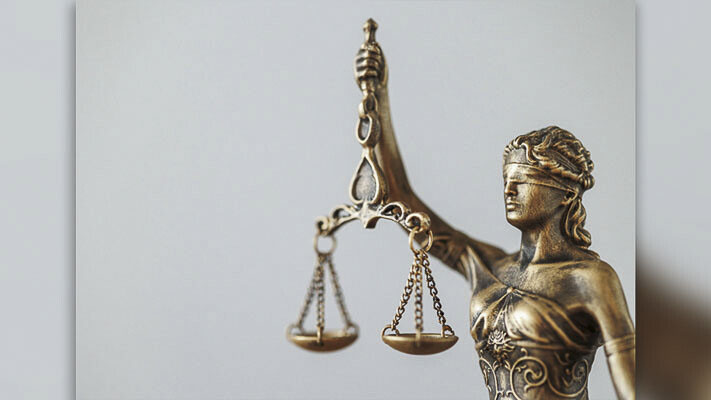
State of Colorado forces Christians to violate their faith in the name of ‘nondiscrimination’
Bob Unruh
WND News Center
The U.S. Supreme Court is to hear arguments on Monday in a critical free speech case.
The question is whether a state – the leftist Colorado in this case – can deliberately order a Christian to violate her faith in the name of its so-called “nondiscrimination” agenda.
The fight is over a Denver website developer who has been ordered by the state, under penalty of law, to promote same-sex marriages through her work if she does any work at all for traditional weddings.
Multiple groups have filed friend-of-the-court briefs, including Liberty Counsel, when the attack by the all-Democrat government in the state against web designer Lorie Smith developed.
The case is 303 Creative v. Elenis.
It’s just the latest attack from the state of Colorado on Christians. Years ago it was soundly rebuked by the Supreme Court for its attack on Masterpiece Cakeshop’s Jack Phillips.
There, the state had ordered him into an indoctrination program for his refusal to use his artistry to create a “wedding cake” for a same-sex duo.
The legal team explained the current issue: “Smith creates unique and beautiful websites for her clients and started her business in 2012 to exercise creative freedom. Smith serves everyone but cannot use her design skills and creativity to express messages that violate her deeply held religious beliefs. However, under Colorado’s Anti-Discrimination Act, Smith could be punished simply for offering to create websites only celebrating weddings consistent with her beliefs that marriage is between one man and one woman.”
Further, the state even imposes a gag order, preventing Smith from expressing on her website why she cannot create messages celebrating “certain ideas.”
As was revealed during the Masterpiece case, the state’s public accommodations law was written with a deliberate bias against people of faith, as it “allows secular artists but not religious ones like Smith to make ‘message-based refusals.’”
”Liberty Counsel presents the fact that artistic expression is pure speech that is fully protected by the First Amendment and must be protected from censorship or compulsion, particularly when the message is an unpopular one. This applies even when speakers are compensated for artistic expression. The protected artistic expression includes, among other things, books, plays, films, video games, music, painting, poetry, drawings, engravings, sculptures and photography. This also includes website creation and content as pure speech since websites can provide a powerful way for private citizens to make their voices heard,” the organization noted.
In the past, the high court has noted the First Amendment draws no distinction between the creation, distribution, or consumption of the speech at hand.
”For example, in Fields v. City of Philadelphia, the High Court ruled that ‘the First Amendment protects actual photos, videos, and recordings, and for this protection to have meaning the Amendment must also protect the act of creating that material.’”
Kristen Waggoner of the Alliance Defending Freedom will argue before the U.S. Supreme Court on Smith’s behalf.
Also read:
- Court rules against Save Vancouver Streets A judge has ruled against Save Vancouver Streets in its legal effort to place a street-use initiative on the ballot. The group is considering whether to appeal.
- July Sparkles at RedDoor GalleryRedDoor Gallery in Camas kicks off July with a vibrant artist reception on July 11, plus special events including Hot Art & Cool Prices, an ice cream social, and a community mural project.
- Battle Ground HealthCare appoints new executive directorNancy Strebe will take over as executive director of Battle Ground HealthCare on July 28. She brings leadership experience and a commitment to healthcare access for underserved residents.
- Deceased person found in Lake River near Ridgefield MarinaA man was found deceased in Lake River near the Ridgefield Marina on July 4. No signs of foul play were observed. A nearby sailboat, believed to be linked to the man, is also under investigation.
- County seeks nominations for local businesses, individuals for Disability Employment Awareness AwardsClark County is seeking nominations for awards honoring inclusive employment efforts. Winners will be recognized Oct. 8 at Clark College during a public event.
- WA watches CA as fed Title IX deadline looms; SCOTUS to hear trans athlete casesWashington state officials are monitoring California’s response to a federal Title IX deadline as tensions rise over transgender athletes in girls’ sports. Superintendent Chris Reykdal says the state won’t comply, risking $137 million in federal funding.
- Trump signs ‘big, beautiful bill’ during White House July 4 celebrationPresident Trump signed the “big, beautiful bill” on July 4 during a White House event featuring a military flyover and Republican leaders.











